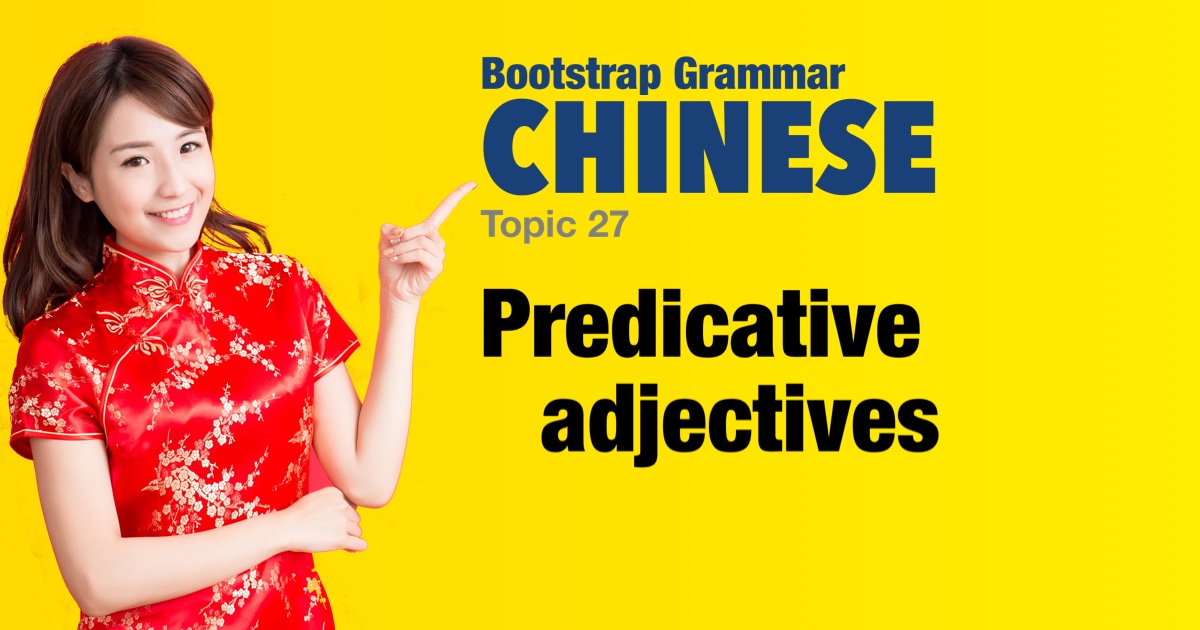Chinese grammar - Predicative adjectives |
|||
|
|||
Adjectives are words that describe or modify a noun. Adjectives can be used in a predicative phrase : like 'A is B' where 'A' is a noun and 'B' is a modifying adjective. In Chinese, in this case, we use 很 (hěn) rather than 是 (shì) to connect the noun and adjective. If we are saying 'A is NOT B', then the connector is 不 (bù) alone (without 很). The pattern is : [subject] + 很 OR 不 + [subjective adjective]. Note however that when the adjective is not subjectuive but a fact - like color - then 是 (shì) might be used. This is explained in the next topic. |
| Examples: | |
|
我很好。
wǒ hén hǎo. I am good.
|
|
|
树很大。
shù hěn dà. The tree is big.
|
|
|
椅子很小。
yǐzi hén xiǎo. The chair is small.
|
|
|
男人很老。
nánrén hén lǎo. The man is old.
|
|
|
老师很年轻。
lǎoshī hěn niánqīng. The teacher is young.
|
|
|
中国很大。
Zhōngguó hěn dà. China is big. |
|
|
那些很昂贵。
nàxiē hěn ángguì. Those are expensive.
|
|
|
这些不便宜。
zhèxiē bù piányi. These are not cheap.
|
|
|
米饭不好。
mǐfàn bù hǎo. The rice is not good. |
|
|
学校不大。
xuéxiào bú dà. The school is not big. |
|
|
狗不好。
gǒu bù hǎo. The dog is not good. |
|
|
三个苹果很贵。
sān gè píngguǒ hěn guì. Three apples are expensive.
|
|
|
一个苹果不贵。
yí gè píngguǒ bú guì. One apple is not expensive.
|
|
 |
|




